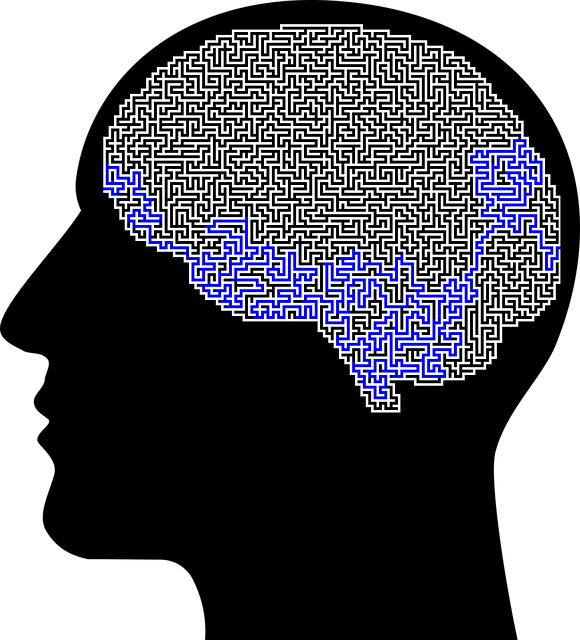Mental illness diagnoses can be complex, requiring professional guidance for conditions like depression, anxiety, bipolar disorder, and schizophrenia. Longmont Stress Management Therapy (LSMT) offers a holistic approach, focusing on stress triggers, self-care routines, and emotional resilience. Understanding diagnosis nuances allows individuals to align treatment with their unique needs, including crisis intervention and personalized strategies. LSMT incorporates compassion cultivation, encouraging self-compassion and empathy, while providing tools for managing acute stress and fostering long-term mental well-being. Effective treatment involves a combination of medication (prescribed by professionals), alternative remedies like LSMT, self-care practices, and support from family and friends. Building this support system empowers individuals to navigate their mental health journey successfully and reduce stigma.
“Mental illness is a complex landscape, and navigating diagnosis and treatment can feel like a daunting journey. This comprehensive guide aims to empower individuals facing these challenges. We explore essential aspects of understanding mental health conditions, from decoding symptoms to recognizing various diagnostic terms.
The spotlight turns to Longmont Stress Management Therapy, offering a holistic approach to healing. We also navigate the diverse treatment spectrum, including medication, therapy types, and alternative remedies. Furthermore, we emphasize the significance of building a robust support system for optimal mental wellness.”
- Understanding Mental Illness Diagnoses: Decoding Terms and Symptoms
- The Longmont Stress Management Therapy Approach: A Holistic Perspective
- Navigating Treatment Options: Medication, Therapy, and Alternative Remedies
- Building a Support System: Self-Care, Family, Friends, and Professional Networks
Understanding Mental Illness Diagnoses: Decoding Terms and Symptoms

Mental illness diagnoses can seem like a maze, filled with unfamiliar terms and symptoms that are often misunderstood. Decoding these is crucial for navigating treatment effectively. Terms like depression, anxiety disorders, bipolar disorder, and schizophrenia each carry specific criteria and manifestations, making it essential to consult professionals who can accurately interpret them. For instance, Longmont Stress Management Therapy focuses on identifying underlying causes of stress-related mental health issues, offering tailored strategies for managing symptoms.
Understanding the nuances of a diagnosis is vital for aligning treatment with individual needs. Crisis intervention guidance, risk management planning for mental health professionals, and even developing a self-care routine can be integral parts of this process. By demystifying diagnoses, individuals can better advocate for themselves, ensuring their journey towards recovery is as effective as possible.
The Longmont Stress Management Therapy Approach: A Holistic Perspective

The Longmont Stress Management Therapy (LSMT) Approach offers a holistic perspective on mental health treatment, focusing on addressing the interconnectedness of physical, emotional, and psychological aspects of well-being. This therapy goes beyond traditional diagnostic labels and medication by empowering individuals to cultivate their own inner resources for healing and resilience. At its core, LSMT incorporates compassion cultivation practices, which encourage clients to develop self-compassion and empathy, fostering a supportive environment where they can explore and process their emotions without judgment.
By integrating crisis intervention guidance into the therapeutic framework, LSMT provides effective tools for managing acute stress and emotional distress. This approach teaches individuals practical strategies for regulating mood, coping with challenging situations, and preventing relapses. Through personalized sessions, therapists guide clients in identifying triggers, developing personalized plans for self-care, and cultivating long-term habits that promote mental well-being. The ultimate goal of LSMT is to enable individuals to lead fulfilling lives by mastering stress management skills, fostering emotional balance, and enhancing their overall quality of life.
Navigating Treatment Options: Medication, Therapy, and Alternative Remedies

Navigating treatment options for mental illness can be overwhelming, but understanding the various approaches is crucial for a successful recovery journey. Medication plays a significant role in managing symptoms, especially for conditions like depression and anxiety. Antidepressants and anti-anxiety medications can help regulate brain chemicals associated with mood and stress responses. However, it’s important to remember that these should be prescribed and monitored by a qualified healthcare professional, ensuring the right dosage and minimal side effects.
Beyond medication, Longmont Stress Management Therapy offers effective alternative remedies for those seeking holistic healing. Therapy sessions provide a safe space for individuals to explore their thoughts, emotions, and behaviors while learning coping skills development and emotional regulation techniques. These evidence-based practices have proven successful in reducing symptoms of various mental health disorders, addressing underlying causes, and fostering long-term well-being. Moreover, these therapeutic approaches contribute to Mental Illness Stigma Reduction Efforts by promoting understanding and empathy towards individuals navigating their mental health journeys.
Building a Support System: Self-Care, Family, Friends, and Professional Networks

Building a robust support system is an integral part of navigating mental illness and its treatment. Self-care forms the foundation, involving activities that nurture physical and emotional well-being, such as regular exercise, mindfulness practices, and maintaining a healthy sleep routine. These habits not only alleviate symptoms but also empower individuals to manage their mental health effectively.
Family and friends play a crucial role in providing emotional support and encouragement. Open communication strategies facilitate conversations about feelings and challenges, fostering understanding and strengthening bonds. Professional networks, including therapists and support groups, offer specialized guidance and skills for resilience building and self-esteem improvement. Longmont Stress Management Therapy, for instance, leverages evidence-based practices to help individuals cultivate coping mechanisms tailored to their unique needs.
Mental illness diagnosis and treatment can be overwhelming, but with the right navigation assistance, individuals can find their way to recovery. By understanding various mental health terms and symptoms, seeking holistic approaches like Longmont Stress Management Therapy, exploring diverse treatment options, and building a strong support system through self-care and connections, one can embark on a path towards improved mental well-being. Remember, navigating these steps with informed decisions and professional guidance is key to achieving lasting positive outcomes.














